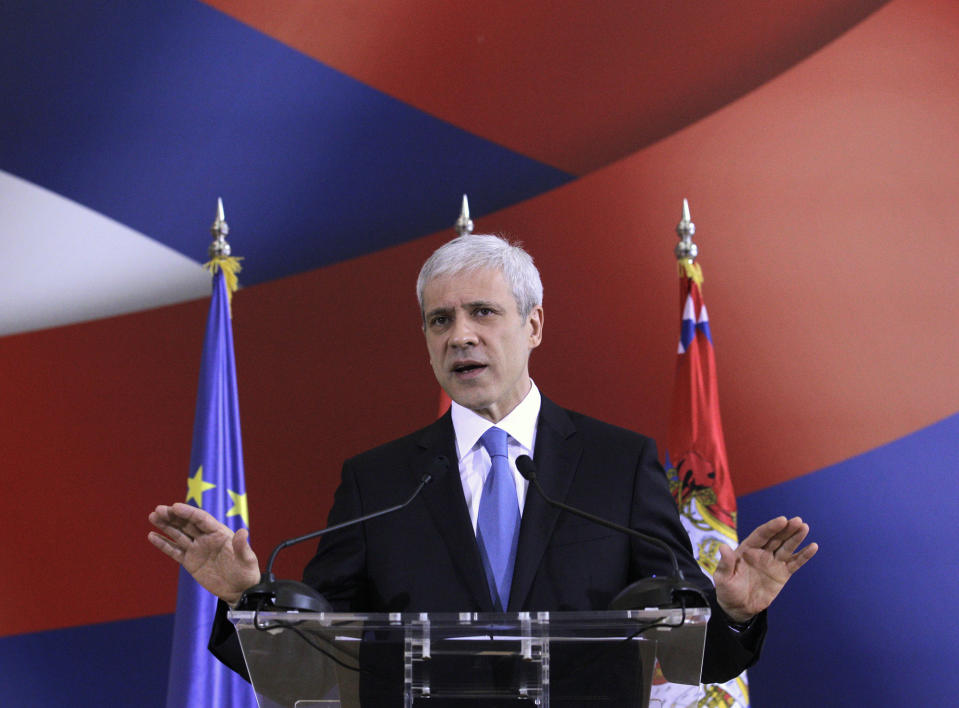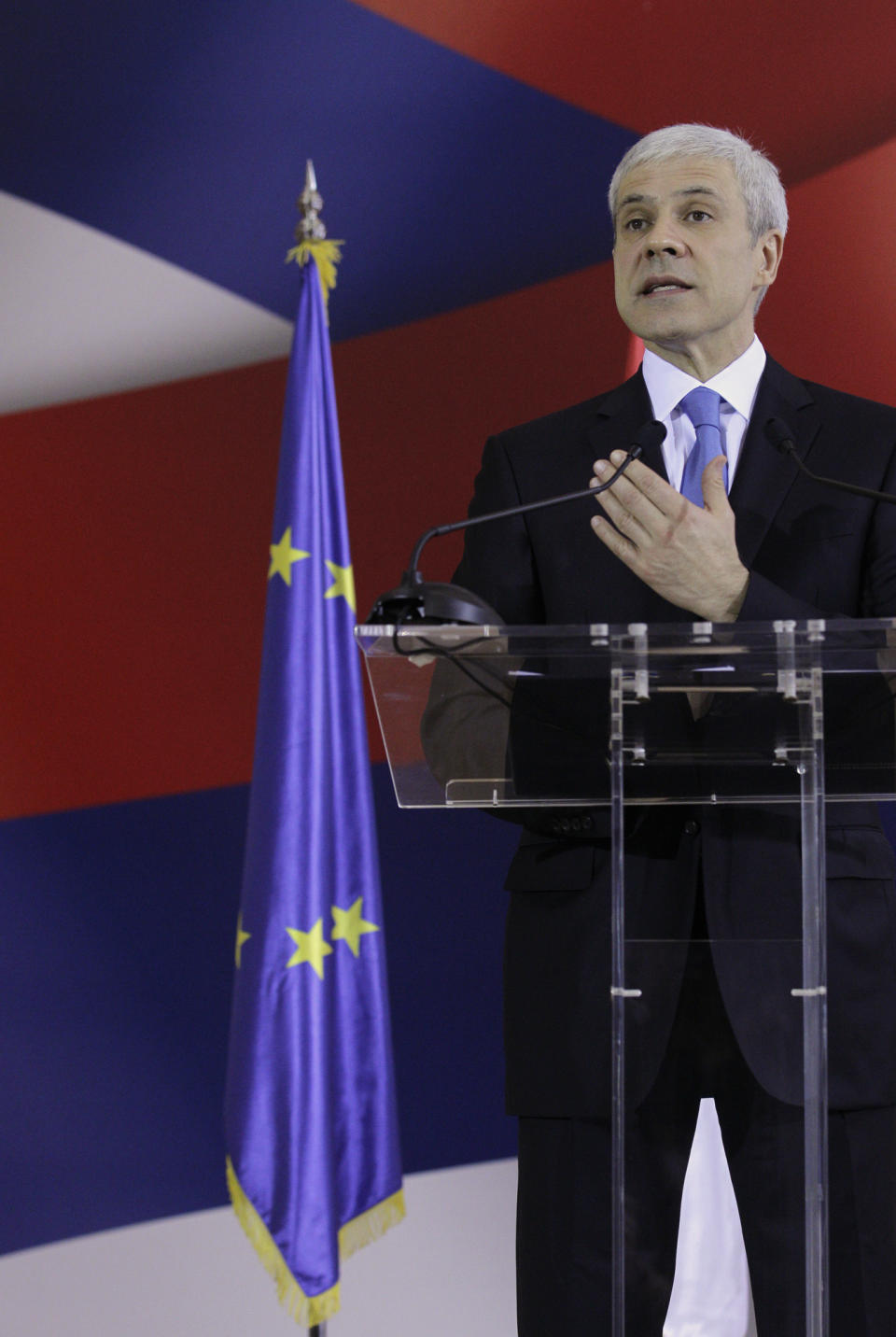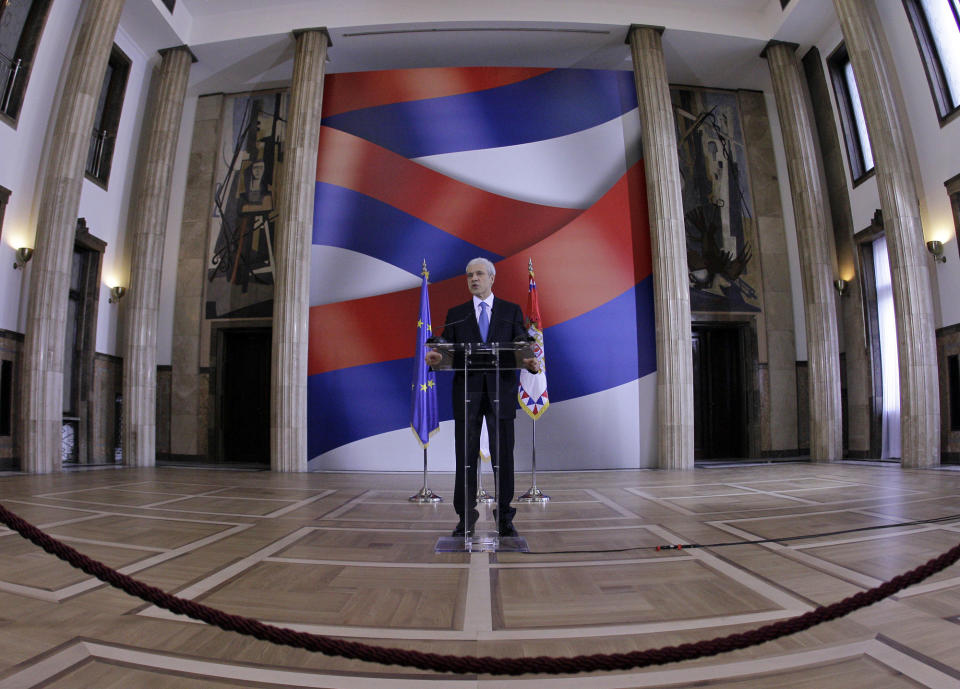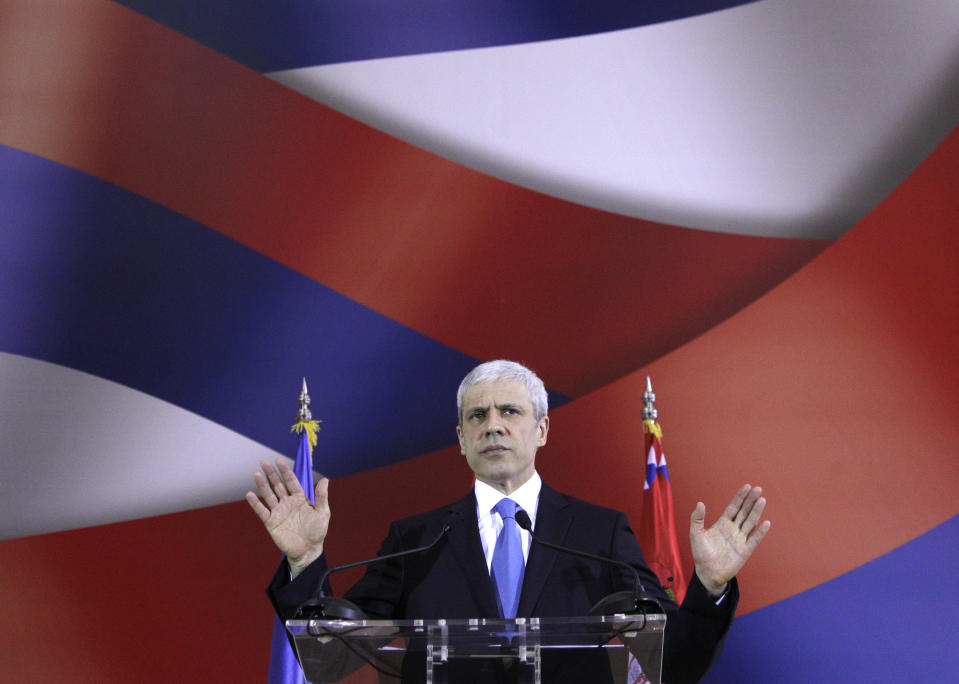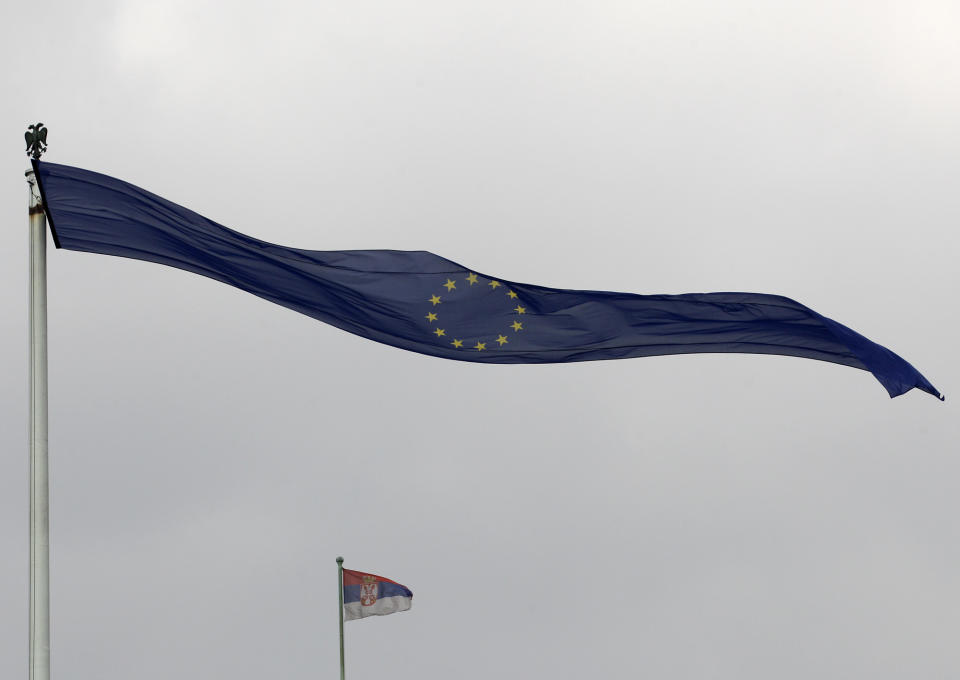Serbia pleased with its EU candidacy
BELGRADE, Serbia (AP) — Serbia's candidacy for European Union membership shows the Balkan country is on "the right track" after years of wars and isolation, President Boris Tadic said Friday.
Tadic also insisted Serbia will never recognize the independence of Kosovo, even though it is ready to continue key talks with its former province for the sake of further EU integration.
"This is a great day for our country," Boris Tadic said in a televised press conference a day after EU leaders formally made Serbia a candidate for entry into the 27-nation bloc. "It is a great achievement."
U.S. and EU leaders also hailed the candidacy, while the EU enlargement commissioner said Belgrade needs to make more progress in the negotiations with Kosovo to get a date for the start of the entry talks.
Serbia had been widely expected to get EU candidacy in December, months after it captured two top war crimes suspects, but Germany delayed the move, saying it wanted to see Serbia improve its ties with Kosovo, which declared independence in 2008.
As large EU flags were hoisted on state buildings in downtown Belgrade on Friday, Tadic said Serbia was ready to continue negotiations, but, he added: "Serbia's position is crystal clear. We will never, under any circumstances, recognize the independence of Kosovo."
Serbia spent much of the 1990s ostracized and isolated from the EU after its then-strongman Slobodan Milosevic started wars in Croatia, Bosnia and Kosovo. In 1999, NATO bombed Serbia to stop the war in Kosovo, forcing Serbia to relinquish control there.
Candidate status is an initial step on the road to EU membership. Belgrade will probably have to wait about a year to open actual accession negotiations, which can then drag on for several years.
EU accession could be a financial boost for Serbia, landlocked country of some 7.5 million people, which faces severe economic problems fueled by the wars and sanctions. Unemployment in Serbia officially is around 20 percent, but analysts believe it is much higher in reality.
EU leaders have told Serbia it does not have to recognize Kosovo's independence to join the bloc, but they want the two to normalize ties for stability of the Balkans. Kosovo so far has been recognized by more than 80 countries, including the United States and 22 EU nations, while Russia has backed Serbia's claim on the territory.
U.S. Secretary of State Hillary Rodham Clinton said "greater European integration is beneficial for Serbia, Kosovo and the entire region."
"I commend the leaders of Kosovo and Serbia for their courage and commitment in making the tough political decisions necessary to reach these milestones," she said in a statement that urged more progress in the talks.
In Brussels, British Prime Minister David Cameron said Serbia's EU candidacy was an important step for the whole Balkan region.
"Twenty years after wars ravaged the Balkans, Serbia has turned a page," Cameron said.
French President Nicolas Sarkozy said, "Serbia has had a turn of the century among the most difficult possible. Serbia has suffered."
EU enlargement commissioner Stefan Fule said "the timeframe (for EU bid) is very much in the hands of Serbia," which needs to fulfill one condition — move forward in normalizing ties with Kosovo through EU-brokered negotiations.
So far, Serbia and Kosovo have tackled a number of disputed issues. They have reached agreement on how Kosovo will be represented in international conferences as well as how Serbia and Kosovo will manage their joint borders and border crossings, a subject that led to violent incidents last summer.
Diplomats in the EU have said the talks now need to address problems in the sectors of energy and telecommunications but that they did not expect the negotiations to resume before general elections are held in Serbia this spring.
In the vote, Tadic's pro-Western coalition will face a strong challenge from nationalists, who accuse the government of selling off Kosovo — considered the cradle of Serbian statehood and religion — in order to get closer to the EU.
Tadic said a new government will have to work hard to speed up the EU process. He said the EU candidacy has opened the door for new foreign investment and further democratic reform.
"We as a country are on the right track," he said. "Better days will come at the end of the road."
____
Dusan Stojanovic in Belgrade and Slobodan Lekic and Robert Wielaard in Brussels contributed.

